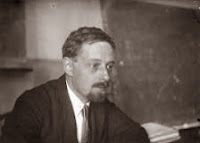Vladimir Propp
Vladimir Propp was a Soviet formalist scholar who analysed the basic plot components of Russian folk tales to identify their simplest irreducible narrative elements.
His narrative theory is that the narrative is driven by the characters using a set of narrative functions
He identifies 8 characters in films
- Hero: (protagonist)Has a mission or quest to complete
- Villain: (Antagonist) Tries to stop the hero
- Princess: Love intreset and/or object of the quest
- Farther: person with knowledge
- Dispatcher: Sends of the hero
- Doner: Gives the hero something to help him
- Sidekick: The helper of the hero
- False hero: villain that pretends to be good to trick the hero
In addition he said that it is narratemes that drive the narrative forward.
Roland Barthes
Roland Barthes was a French literary theorist, philosopher, linguist, critic, and semiotician
Barthes describes narrative as a series of codes that are read and interpreted by audience
Action code- something that's quite literal doesn't need explaining
Enigma- Something hidden from the audience (creates intrigue)
Semic code- Something that the audience recognize through connotations
Symbolic- Something that symbolizes a more abstract concept
Cultural code- Something that is read with understanding due to cultural awareness.
Tsvetan Todorov
Tzvetan Todorov is a Franco-Bulgarian philosopher.
Todorov describes narrative as going from equilibrium to disequilibrium back to an altered equilibrium.
Equilibrium - sets the scene, everyday life
Disruption - A complication, something that alters the equilibrium
Conflict - Climax, try to solve the problem
Resolution - Problem is solved
New equilibrium - Back to normal but not the same, a new version
Claude Levi-Strauss
Claude Levi-Strauss was a French anthropologist and ethnologist
Stauss describes narrative as created by constant conflict of binary opposites. The binary opposites work together to help understand narrative structure.
Love/Hate Black/White Peace/War Light/Darkness Young/Old




No comments:
Post a Comment